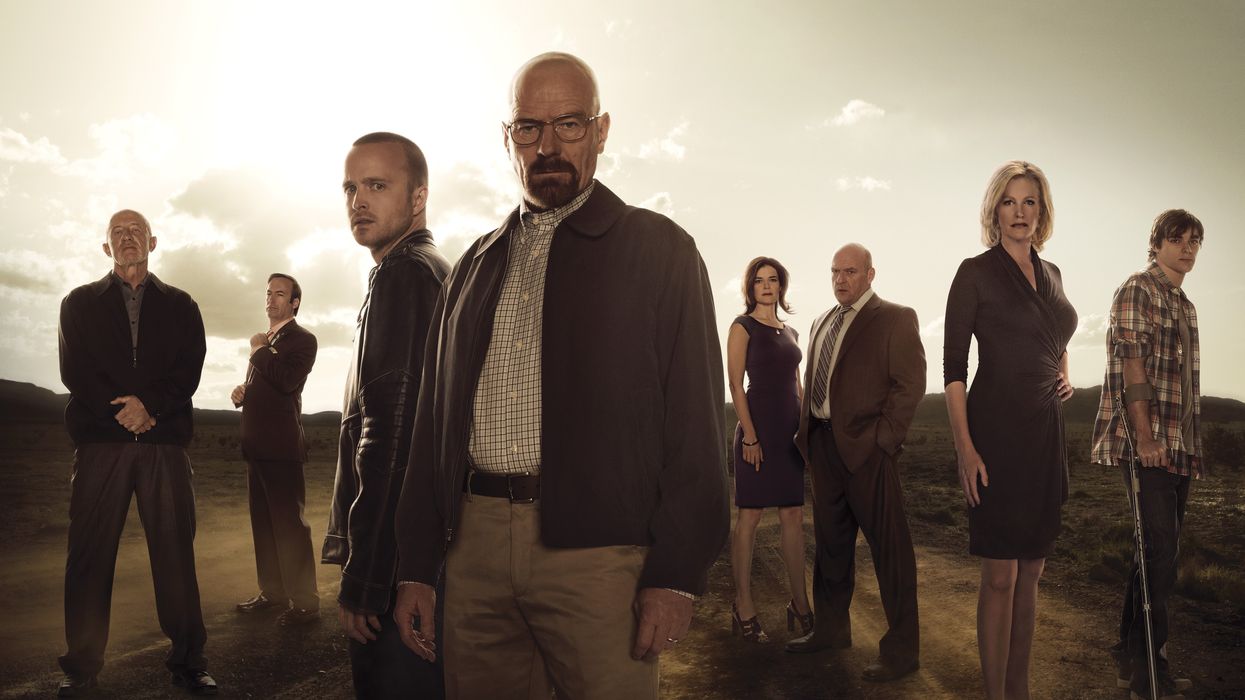'Breaking Bad' Creators on Developing the Story of Walter White

As I write this, there's no doubt that a large number of you are sitting in your living rooms, bedrooms, or tucked quietly inside the bathroom at work watching the final episode of Breaking Bad. The show has been captivating audiences and inspiring filmmakers and screenwriters for 5 seasons, and as we say goodbye to Walter White, let's also take a look at one aspect of the show that made it one of the most important shows to watch and study: the writing -- the process of taking a simple high school chemistry teacher and turning him into a deadly meth dealer.
Cinephilia and Beyond has shared a treasure trove of Breaking Bad goodness: scripts from several episodes including the pilot and images from the Breaking Bad writer's room, where index cards litter corkboards in order to map out scenes. The show is known for its excellent writing, so having the scripts right there at your fingertips is definitely helpful if you want to learn more about story structure, character development, and dialog.
Again, big thanks to Cinephilia and Beyond for gathering these resources!
- Season 1; Ep. 1 -- The Pilot
- Season 3; Ep. 1 -- No Mas
- Season 3; Ep. 3 -- IFT
- Season 3; Ep. 8 -- I See You
In an episode of The Writer's Room, hosted by Jim Rash, the show's creators Vince Gilligan, Thomas Schnauz, Moira Walley Beckett, Peter Gould, as well as others including Bryan Cranston, sit down and talk about the show -- how it came to be, pitching it as "Mr. Chips to Scarface," their writing process, and the difficulty of writing a character like Walter, who changes more than most anti-heroes in television do.
Gould describes the script as "a real filmmaker's script," and Writer/Co-Executive Producer George Mastras says that "it had an independent film feel to it." The show is definitely daring. It's organic. It takes risks. It's the kind of show that you watch and think, "Oh yeah, those filmmakers are making exactly the show they want to make." And the star of the series, Bryan Cranston, touches on a great aspect of screenwriting. He describes reflecting on reading the pilot episode:
And I realized that what he was saying didn't have a precedent -- that to change a character in a television series has never happened before in the history of television. To actually allow a character to change -- it's always been about stasis, and that's the comfort that most people find. They tune in, there's Thomas Magnum -- there's Archie Bunker -- and all these characters are about staying the same. And this was all about allowing us to change.
Taking the narrative risk of allowing your TV characters to change and grow in appearance and demeanor -- and in such drastic ways can lead to amazing results, like a hit TV show, but it can also lead to more complicated writing. The shows writers discuss how they were always asking the question, "Where's Walt's head at? Where is he now?"
Writing a character who keeps the same characteristics through the entire series means that a good writer will really be able to grab ahold of who that character is and develop the hell out them. You know it when you see it -- when you watch early episodes of a show and then later ones, the characters are streamlined and solid. It really says a lot about Breaking Bad's writers that they didn't have that luxury -- that they didn't have a Walter White mold to really fall back on and go back to.
Check out this great episode of The Writer's Room here. And check out this depressing video of Cranston and co-star Aaron Paul gearing up to read the final episode for the first time.
What do you think of Breaking Bad's screenwriting? What shows on TV speak to you in terms of great story/characters/dialog? In what ways have you expressed your despair that the show is over? Personally, I'm about to put on my trusty pork pie hat, sit on my steps in the pouring rain and cry over a bowl and spaghetti.
Links:
- Inside the Breaking Bad Writer's Room -- Cinephilia and Beyond
- The Writer's Room: Breaking Bad -- Sundance Channel












